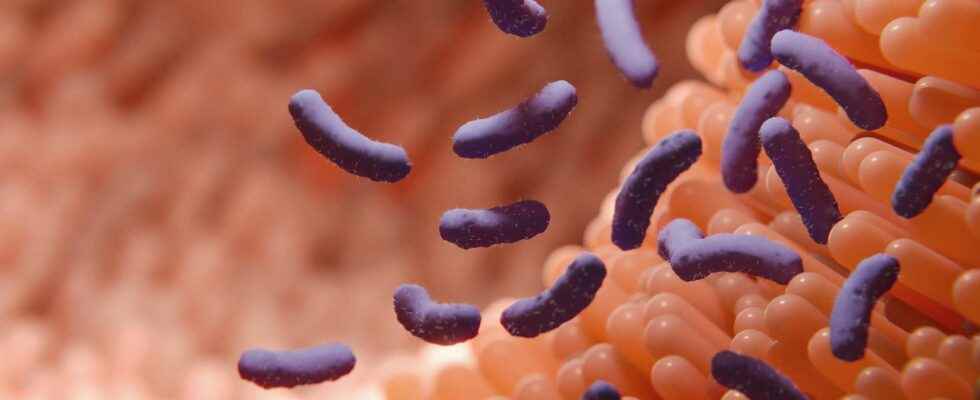You will also be interested
[EN VIDÉO] Interview: the intestinal microbiota, an essential ally of the immune system The intestinal microbiota includes all the microbes present in our intestine. It allows a good functioning as well as a certain protection of the colon. Gerard Eberl, head of the Micro-environment & Immunity unit at the Institut Pasteur, tells us more during this interview.
the immune system from mucous membranes intestinal, and particularly theimmunity innate, plays an essential role in the regulation of host-microbe interactions and in particular in the protection against pathogens. Researchers from the Institut Pasteur and Inserm have shown, using an animal model ofintestinal infectionthat certain cells of innate immunity, the cells lymphoids innate type 3, did not act only in the early phase of infection, but that they could be trained and provided with a form of memory during reinfection. This characteristic was until now known to belong mainly to the B and T cells of adaptive immunity. This study is published in Scienceon February 25, 2022.
The fight against infections Escherichia coli responsible for intestinal pathologies or haemorrhages represents a global public health issue. present in drinking water or food, these bacteria can lead to diarrhea persistent, associated with inflammation acute bowel. They are estimated to represent almost 9% of the global causes of death in children.
The intestinal mucosa is equipped with a complex defensive system allowing it to fight against this type of infection, while maintaining a tolerance towards the microbiotaessential for the proper functioning of the body. This constant monitoring is ensured by the “innate” immune system, which organizes an early defense from the first hours following the infection. Then the immune system adaptive develops a memory towards the pathogens it encounters, thanks to the activation of specific receptors expressed on the surface of lymphocytes B and T, thus allowing the production of protective antibodies and cytokines inflammatory.
Contrary to the clearly established role of the adaptive system in tolerance and protection, that of the innate system in maintaining this balance remains poorly understood.
It was in 2008 that the team of the Inserm researcher James DiSanto (Innate Immunity Unit, Institut Pasteur / Inserm) describes lymphoid cells innate type 3 (“group 3 innate lymphoid cells », ILC3) as a new family of lymphocytes, distinct from T and B lymphocytes. intestinal mucosathrough their production of pro-inflammatory cytokines, such asinterleukin (IL)-22.
The production of cytokines then makes it possible to activate the production by the epithelial cells of peptides antimicrobials, reducing the bacterial load in order to maintain theintegrity of the intestinal barrier.
In this study, researchers from the Innate Immunity Unit (Institut Pasteur / Inserm) showed that by using murine intestinal bacteria, Citrobacter rodentium (a model of infection with E.coli in humans), the ILC3s persist for several months after their activation during an infection. They applied a protocol innovative way to expose the immune system to reduced amounts of bacteria C. rodentium. The scientists found that this limited exposure induces long-lasting changes in ILC3 function.
Thus, during a second infection, the “experienced” ILC3s allow rapid control of the infection thanks to increased proliferation and massive production of IL-22.
“ Our work shows that intestinal ILC3s acquire a memory to strengthen the defenses of the intestinal mucosa against repeated infections over time. explains Nicolas Serafini, first author of the study and Inserm researcher in the Innate Immunity Unit (Pasteur Institute / Inserm).
” The ability to “train” the innate immune system at the mucosal level paves the way for improving the body’s defense against a variety of pathogens that cause diseases human commented James Di Santo, lead author of the study and head of the Innate Immunity Unit (Pasteur Institute / Inserm). This discovery highlights a new antibacterial immune defense mechanism and could eventually open up new therapeutic approaches against intestinal pathologies (IBD or Cancer).
Interested in what you just read?
